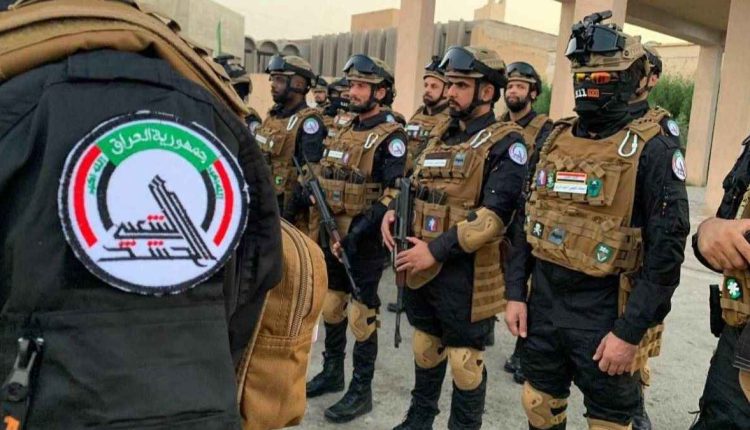By Ahmad Othman
QAMISHLI, Syria (North Press) – A looming confrontation between Israel and Iran has come into sharper focus, following warnings issued by U.S. President Donald Trump ahead of renewed indirect negotiations with Iran held in Amman last week. Trump threatened military action should Iran refuse to end its nuclear program, explicitly stating that Israel would play a significant role in any such intervention.
During a recent meeting with the Israeli Prime Minister at the White House, Trump told reporters that military options were on the table: “I’m not asking for much… but they can’t have a nuclear weapon,” he said, adding, “If it requires military, we’re going to have military. Israel will, obviously, be … the leader of that. No one leads us. We do what we want.”
On April 12, Trump remarked that a decision on Iran would be made very quickly, following what both Washington and Tehran described as positive and constructive discussions in Oman. A second round of talks is reportedly scheduled to take place in Rome.
The meeting in Oman marked the first official contact between Iran and a Trump-led U.S. administration, including his current presidential campaign team and former officials. According to diplomatic sources, the talks were held in a productive and calm atmosphere.
However, failure in these negotiations could trigger a military confrontation, potentially drawing Iraq into the conflict due to the presence of Iran-aligned militias operating within its borders. Despite efforts by the Iraqi government to rein in these groups, some factions have reportedly signaled a willingness to disarm to avoid provoking a military backlash from the U.S. or Israel.
Iranian-backed militias in the crosshairs
Many of these militias operate under the umbrella of the Popular Mobilization Forces (PMF), an Iraqi paramilitary coalition formed in 2014 to combat ISIS. The PMF includes over 70 factions, among them groups designated as terrorist organizations, such as Harakat al-Nujaba, Asa’ib Ahl al-Haq, and Kata’ib Hezbollah—all closely aligned with Tehran.
Iraqi Prime Minister Mohammed Shia’ al-Sudani is reportedly concerned that Israel might retaliate against these factions, potentially dragging Iraq into a broader regional conflict. His fears are informed by past incidents, including Hezbollah’s clash with Israel, which cost Lebanon an estimated $8.5 billion in damages. Al-Sudani has actively appealed to Iran to help rein in these militias and has urged his coalition partners in the PMF to halt any provocative actions.
In late 2024, Israel formally warned six Iraqi militias—Asa’ib Ahl al-Haq, Kata’ib Hezbollah, Badr Brigades, Harakat al-Nujaba, Ansar Allah al-Awfiya, and Kata’ib Sayyid al-Shuhada—accusing them of attacking Israeli targets. Israel’s foreign minister submitted an official complaint to the U.N. Security Council, calling on Iraq to fulfill its responsibilities in preventing such attacks. “Israel reserves the right to respond and take all necessary measures to protect its citizens,” the minister stated.
Negotiations or tactical delay?
Mustafa al-Nuaimi, a research fellow at the Arab Forum for Iranian Policy Analysis, believes the U.S. continues to apply “maximum pressure” on Tehran, both diplomatically and militarily. He notes heightened military preparedness in the Gulf and Arabian Sea regions, potentially extending into the Pacific.
Al-Nuaimi argues that the U.S. is preparing for all scenarios—from diplomatic agreements to military enforcement. He sees a growing likelihood of force being used if Iran remains defiant, particularly regarding the inspection of its nuclear facilities and its uranium enrichment levels, which have now reportedly exceeded 60 percent.
According to Al-Nuaimi, Iran has signaled that it possesses more than 260 kg of enriched uranium—enough to build up to six nuclear bombs. He believes Iran is simultaneously engaging in negotiations while advancing its nuclear capabilities, including constructing backup nuclear sites and expanding the Bushehr reactor near the Gulf.
He also warns that Iranian-backed militias could soon acquire advanced ballistic missiles, such as the Fateh-110, which has a range of up to 1,000 miles. Should Israel confirm the presence of such weaponry in Iraq, preemptive strikes on suspected storage sites could follow.
Averting war
Despite these concerns, Iraqi military expert Safaa al-Asam considers a full-scale U.S.-Iran confrontation unlikely, particularly after the first round of negotiations in Amman concluded on a positive note. He believes Iran has already made significant concessions, aware of Washington’s serious intent and its own economic constraints.
Al-Asam differentiates between Iran-backed “resistance factions” and the PMF, which he describes as a state-sanctioned entity under the command of Iraq’s parliament and military leadership. According to him, many factions are already prepared to disarm and pursue political roles instead.
He argues that for Iraq to avoid becoming a battleground, all militias must relinquish their arms to the state. He adds that Tehran has withdrawn its direct support for these groups, further isolating them and increasing pressure to comply with government directives.

